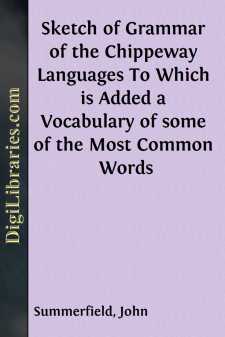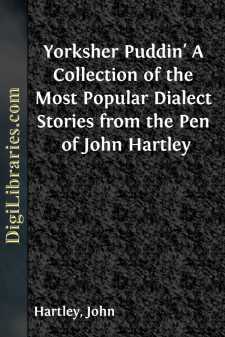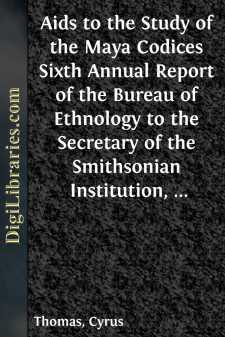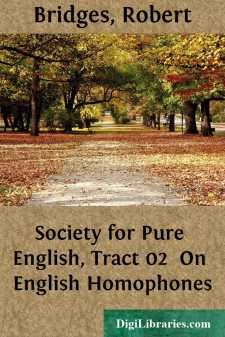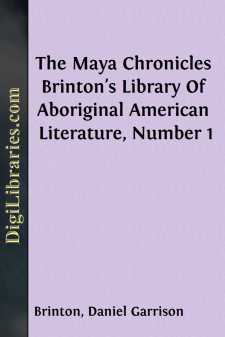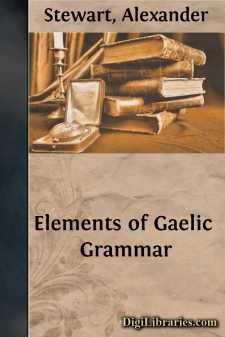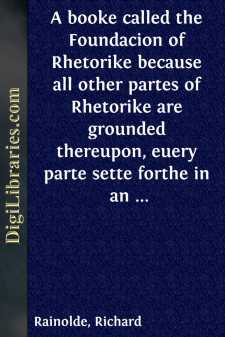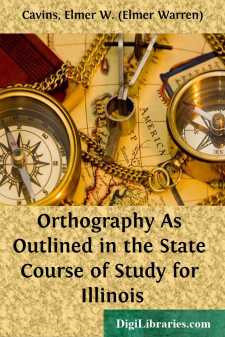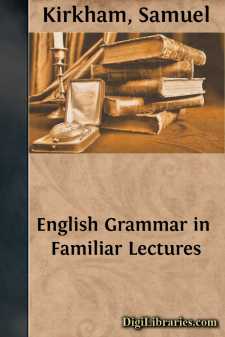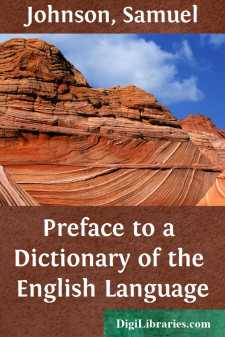Language Arts & Disciplines
Language Arts & Disciplines Books
Sort by:
by:
John Summerfield
ADVERTISEMENT. The following pages were written as an exercise for my leisure hours, while attending the Oneida Conference Seminary during the past winter. As it is the first attempt that, to my knowledge, has ever been made to reduce the Chippeway language to any system, it cannot be expected to be otherwise than imperfect, and perhaps may hereafter be found to be, in some respects, erroneous. It is,...
more...
by:
John Hartley
Or the Cottage on the Hill. A Christmas Story. CHAPTER I. The last strain of the grand old Christmas hymn had just been warbled forth from the throats and hearts of a number of happy folks, who were seated around the blazing log one Christmas eve; and on the face of each one of that family circle the cheering light revealed the look of happiness; the young—happy in the present, and indulging in...
more...
by:
Cyrus Thomas
INTRODUCTION. The object of this paper is to present to students of American paleography a brief explanation of some discoveries, made in regard to certain Maya codices, which are not mentioned in my previous papers relating to these aboriginal manuscripts. It is apparent to every one who has carefully studied these manuscripts that any attempt to decipher them on the supposition that they contain true...
more...
by:
Robert Bridges
ENGLISH HOMOPHONES Definition of homophone. When two or more words different in origin and signification are pronounced alike, whether they are alike or not in their spelling, they are said to be homophonous, or homophones of each other. Such words if spoken without context are of ambiguous signification. Homophone is strictly a relative term, but it is convenient to use it absolutely, and to call any...
more...
INTRODUCTION. CONTENTS. 1. The Name “Maya.” 2. The Maya Linguistic Family. 3. Origin of the Maya Tribes. 4. Political Condition at the time of the Conquest. 5. Grammatical Observations. 6. The Numeral System. 7. The Calendar. 8. Ancient Hieroglyphic Books. 9. Modern Maya Manuscripts. 10. Grammars And Dictionaries of the Language. § 1. The Name “Maya.” In his second voyage, Columbus heard vague...
more...
INTRODUCTION. The utility of a Grammar of the Scottish Gaelic will be variously appreciated. Some will be disposed to deride the vain endeavour to restore vigour to a decaying superannuated language. Those who reckon the extirpation of the Gaelic a necessary step toward that general extension of the English which they deem essential to the political interest of the Highlands, will condemn every project...
more...
by:
Richard Rainolde
To the Reader. PHTHONIVS a famous man, wrotein Greke of soche declamacions, to en-structe the studentes thereof, with all fa-cilitée to grounde in them, a moste plenti-ous and riche vein of eloquence. No manis able to inuente a more profitable waieand order, to instructe any one in the ex-quisite and absolute perfeccion, of wisedome and eloquence,then Aphthonius Quintilianus and Hermogenes. Tullie...
more...
INTRODUCTIONBY DR. EDWIN C. HEWETT. I have long thought that the careful, discriminating study of words is much neglected in our schools. And I am glad to approve, and help to forward, anything that will promote such a study. Not only will such a study improve a person's language greatly, but it will, at the same time, do much to improve the clearness and precision of his thinking; thought and...
more...
by:
Samuel Kirkham
LECTURE I TO THE YOUNG LEARNER. You are about to enter upon one of the most useful, and, when rightly pursued, one of the most interesting studies in the whole circle of science. If, however, you, like many a misguided youth, are under the impression that the study of grammar is dry and irksome, and a matter of little consequence, I trust I shall succeed in removing from your mind, all such false...
more...
by:
Samuel Johnson
It is the fate of those who toil at the lower employments of life, to be rather driven by the fear of evil, than attracted by the prospect of good; to be exposed to censure, without hope of praise; to be disgraced by miscarriage, or punished for neglect, where success would have been without applause, and diligence without reward. Among these unhappy mortals is the writer of dictionaries; whom mankind...
more...


